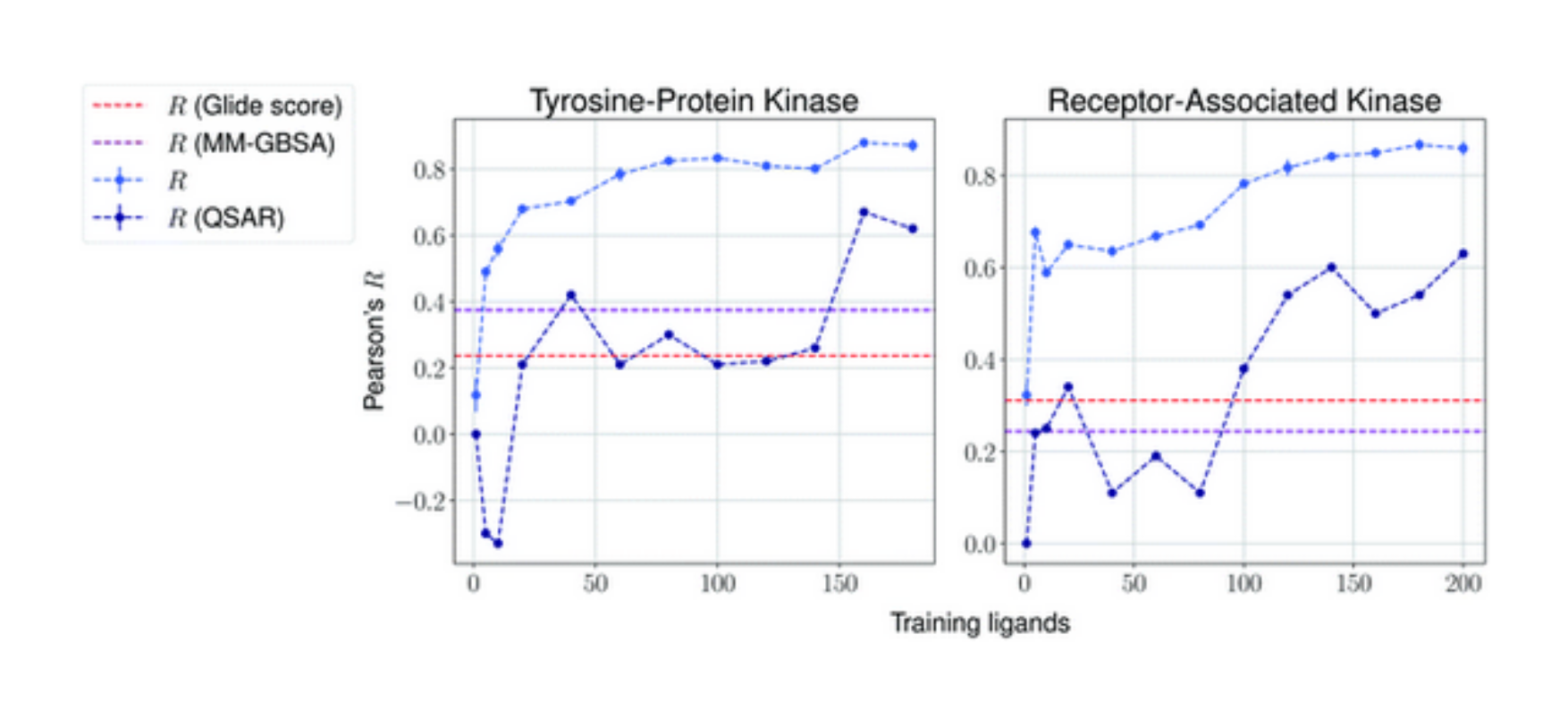
Introduction
In the realm of drug discovery, optimizing the potency of small molecules against specific protein targets is a critical and challenging phase. Traditional simulation-based methodologies, while insightful, have limitations in prospective application. Addressing this, a collaborative study involving Acellera, Janssen, Pfizer, and Biogen has successfully implemented an innovative machine learning approach, utilizing deep 3D-convolutional neural networks, to predict the relative binding affinity of congeneric series in lead optimization.
Background
The project's objective was to address the limitations of current relative binding free energy (RBFE) simulation methods, which, despite their accuracy, are encumbered by issues like system preparation and computational cost. Traditional methods also struggle to differentiate small potency variations within congeneric series - a crucial aspect in lead optimization.
The DeltaDelta Approach
The DeltaDelta neural network, a deep learning model, was developed to predict relative binding affinities within congeneric series, offering a solution to the inadequacies of traditional methods. This model was tested on extensive datasets provided by Janssen, Pfizer, Biogen, and other sources, totaling over 3246 ligands across 13 targets. The model's predictive power was validated through blind testing, which represented one of the most comprehensive evaluations in the field.
Key Findings
- Predictive Power: The DeltaDelta neural network demonstrated remarkable predictive accuracy in blind tests, significantly surpassing traditional RBFE calculations.
- Efficiency and Cost-effectiveness: The model provided highly accurate predictions at negligible computational costs, marking a substantial improvement over more resource-intensive simulation methods.
- Broad Applicability: The successful application of this model across diverse datasets underlines its versatility and potential as a standard tool in lead optimization.
Conclusion
This collaboration showcases a significant advancement in the field of computational chemistry and drug design. The DeltaDelta neural network offers a groundbreaking approach to predicting small molecule potency, enhancing the efficiency and effectiveness of lead optimization processes in drug discovery. The success of this model not only underscores the power of machine learning in pharmaceutical research but also sets a new standard in the application of computational methods in drug development.
Collaborative Impact
The joint effort of Acellera, Janssen, Pfizer, and Biogen in developing and validating this model exemplifies the synergy of combining diverse expertise in computational science and pharmaceutical research. This collaboration serves as a model for future endeavors in the field, where interdisciplinary approaches can lead to significant breakthroughs in drug discovery.


